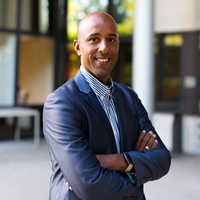Siddy holds a Master’s degree in Economics from the University of Antwerp and a Master's degree in Financial Management from the Vlerick Business School. Passionate by innovation and entrepreneurship, he also participated to an Executive Master in Venture Capital at the Berkeley Haas School of Business. Prior to joining Econopolis, he managed the Investor Relations & Treasury office at Orange Belgium, a telecom company. Siddy also held the position of Telecom, Media & Technology analyst at a large Belgian Asset Management firm. Further, he is also active in the advisory board of StartupVillage and The Beacon, a business and innovation hub in the center of Antwerp focused on Internet of Things and Artificial Intelligence in the domains of industry, logistics and smart city. At Econopolis, he is Portfolio Manager of the Econopolis Exponential Technologies Fund.
Innovation does not come overnight.


Like some of you, I also went to see the American biographical drama film Oppenheimer, directed by Christopher Nolan. The film is based on the Pulitzer Prize-winning book American “Prometheus: The Triumph and Tragedy of J. Robert Oppenheimer” by Kai Bird and Martin J. Sherwin. It stars Cillian Murphy as J. Robert Oppenheimer, the theoretical physicist who led the Manhattan Project that developed the first nuclear weapons during World War II. The movie focusses on Oppenheimer's role in the Manhattan Project and the moral dilemmas he faced in bringing nuclear weapons into the world.
While the movie doesn’t dive too deep into the technical matters of a nuclear bomb, it does provide a good narrative of the long and uncertain road Oppenheimer went through before his final ‘discovery’ of the nuclear bomb, traversing his chemistry and physics studies and earning his PhD at Harvard and Cambridge in the 1920s and his postdoctoral research at Caltech and the University of California. His short stint at the University of Gottingen and the University of Utrecht, or his visits and guest lectures at the University of Leiden and Leipzig. The movie cinematographically depicts a number of his more renowned papers in which Oppenheimer applied new quantum mechanics theories to topics like molecular bonding, neutron stars, and cosmic rays. These papers contributed to establish his reputation as an expert in theoretical physics.
That said, Oppenheimer could never have done what he did without the work and inventions of many others, such as Niels Bohr, Werner Heisenberg, and Erwin Schrodinger, who provided the theoretical framework for understanding atomic and nuclear processes; Ernest Lawrence, who invented the cyclotron particle accelerator, enabling the study of nuclear reactions; Enrico Fermi, who demonstrated the phenomenon of nuclear fission; the development of better nuclear detection equipment like the cloud chamber and Geiger counter, which enabled scientists to observe nuclear reactions and to collect more accurate data needed for theoretical calculations; and last but not least, the mathematical insights from physicists like John von Neumann (note that the same John von Neumann made significant contributions to the field of artificial intelligence. Isn’t it a small world?).
As the title of this text underscores, innovation usually requires time, effort, and persistence. In that respect, the movie Oppenheimer serves as a worthy reminder that breakthroughs and significant changes often result from a continuous process of development and refinement. There are some interesting parallels that can be drawn between the long development path that Oppenheimer went through and the winding roads of exponential technology innovations. Let’s take electric vehicles as an example, with Tesla as its proponent, to illustrate how a combination of theoretical insights and experimental tinkering over time can lead to innovation. Exponential technologies also tend to stack Lego-like on previous breakthroughs, for example OpenAI’s ChatGPT could not have been such a whirling success without Google’s work on transformers. The role of outside catalysts often plays a part as well. The worldwide aspiration to drive down CO2-emissions is clearly pushing the advancement of climate tech, resulting in an acceleration in battery development and renewable breakthroughs. A quick glance at the overall semiconductor supply chain underscores that global openness and collaboration are crucial for chip advancements, in a similar way to the early exploratory years of Oppenheimer in Europe.
Related to this last point, earlier this week, Taiwan Semiconductor Manufacturing Company (TSMC), Bosch, Infineon Technologies, and NXP Semiconductors revealed their joint investment plan to create a new company, namely European Semiconductor Manufacturing Company (ESMC) located in Dresden, Germany. Total investments are set to exceed 10 billion euros, with contributions from equity injection, debt, and substantial support from the EU and German government. The goal behind this initiative is to break ground for an advanced semiconductor factory on European ground, to cater to the growing European automotive and industrial sectors, and to at least, slightly reduce its dependency on other continents. If that isn’t a nice example of knowledge and skill sharing.
Artificial intelligence has only just managed to conquer its place under the spotlight, and lo and behold, last week it already had to compete with another technological breakthrough, or so it seemed. At the end of July, South Korean researchers published a paper claiming to have created a room-temperature superconductor called LK-99. Superconductors are special materials that allow electricity to flow without wasting or losing energy. Regular superconductors only work when they are extremely cold. Scientists dream of finding a superconductor that operates at normal room temperature, so that it can be used in day-to-day products. Thus, if true, the finding of the South Korean researchers would be a major breakthrough, as room-temperature superconductors have the potential to revolutionize many technologies, such as power transmission, energy storage, medical imaging, and computing. As we write this, researchers all over the world are reviewing the South Koreans' claims and trying to reproduce their results. Even if the original claims by the South Koreans are later found to be exaggerated, they will still have the merit of boosting superconductor research worldwide. And who knows? This might bring humanity closer to a new exponential technology.
